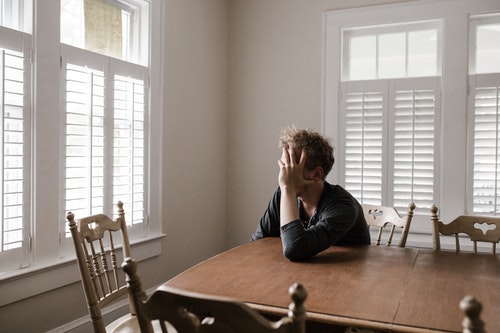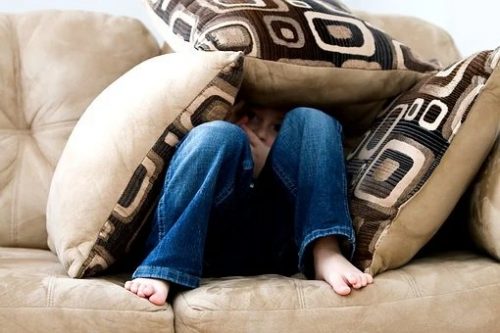Therapy may offer a secure environment to talk about your feelings and bring about change, regardless of whether you’re managing a particular ailment, grieving a loss, or adjusting to daily stressors. Being at ease and connecting with your master’s degree holder therapist is essential throughout online therapy sessions as it’s a personal procedure.

Let’s celebrate your accomplishment if you are currently under the care of a mental health professional. Recognizing when you need help requires a great deal of bravery. Because of the shortage of therapists, racial inequities in the industry, and rising expenses of mental health care, selecting a therapist who is an appropriate match for you might be difficult.
It is fairly common that even when you’ve overcome the difficulties in finding a therapist, you might discover that the one you currently see isn’t the best fit for you. Sometimes, it takes a few sessions for this insight to sink in. Determining whether a treatment appointment is working or becoming uncomfortable is simple. Other times, after a few years, you could question if it’s time to make a change. Anytime this idea crosses your mind, it’s acceptable to go on to a new therapist. Continue reading to discover why you should see a different therapist, changing therapists, and how to transition to a new provider.
Indications That It May Be Time to Switch Therapists
It’s occasionally easy to discover a quality therapist by calling up the first one you find online or based on a suggestion from someone you know, a friend, or a close relative. It’s crucial to locate a therapist with whom you click and feel at ease to reap the treatment’s full advantages. It’s acceptable to wonder if you ought to see a different therapist. The primary inquiry should be why you are considering switching to a new supplier.
You’re Not Getting Well Or Note Feeling Better
Firstly, research findings indicate that the duration of therapy differs based on the person being treated and the type of therapy delivered. Therefore, you may have been participating in therapy for an extended period and wonder why you aren’t “better.” Additionally, bodily therapy process is a better option because talk therapy hasn’t been effective for you any longer. You may have been seeing your present therapist for years and feel like you might use a change of viewpoint.
Your Therapist Isn’t Suitable for You
You must take care of and protect yourself by terminating the therapy session and therapeutic relationship right away if the professional providing the therapy has engaged in any unethical or inept behavior that negatively impacts you, such as breaching your confidentiality, acting inappropriately during the online therapy platform session, making an inappropriate sexual move, or using you to satisfy their own needs. The negative experience you may suffer can make you feel uncomfortable or feel unsafe and become more eager to seek a good relationship. These are the key issues that may feel like your therapist is the only one who can help you for obvious reasons when these things feel overwhelming.
Therapy Becomes Unaffordable
Your ability to pay your therapist’s full charge may have to change if your financial situation has changed. Asking your previous therapist to agree to a reduced session fee is the best action if paying them at their present rate puts you in a difficult financial situation. To guarantee mental health services sustainability, many therapists can adapt to adjustments in financial circumstances and provide a sliding scale fee.

You Are Upset With Your Therapist
You may occasionally become annoyed or upset with your current therapist. Disagreement over feedback given during a session, cancellation fees, or anything in between might cause a split. However, if rifts between the patient and a mental health professional aren’t expertly repaired, it may cause new clients to terminate therapy before they’re ready. The patient may even decide to completely give up on the treatment. Consider talking to your therapist about how you’re feeling before considering switching therapists if you’ve experienced a breakup. Speaking candidly about what happened can be extremely helpful, even if you ultimately decide you still want to see a different therapist.
They Don’t Have The Knowledge And Experience You Seek
To ensure that therapy is effective for a more specific mental health condition (such as an eating disorder, obsessive compulsive disorder, or gender identity, ) you should look for a mental health professional who specializes in that kind of practice. In either scenario, the best action is to inform your therapist that you’d like to find another professional because you and they aren’t clicking. Some therapists will even attempt to assist you in finding another professional who is a better fit; most will understand and not take it personally.
You’re Not Observing Any Positive Change
If you aren’t seeing any change after a few weeks or years of therapy, that is one of the most readily apparent indicators for making the switch. It would help if you defined progress precisely for yourself. With your therapist, you should always generate a treatment plan and set objectives you can work toward. Try talking to your therapist about it if you’ve done this and feel like you haven’t still need to achieve your objectives. It could be a better fit, so give it a little time to settle in and see if you still need to observe any improvements. Try to be realistic about how long it might take to see progress in therapy, depending on your objective.
You Feel Like You No Longer Know Why You’re Going
You need to feel your therapist is paying attention to what you have to say, even if you’re not feeling safe discussing anything with them. Although your objectives may shift over time, you should always know why you spend money on therapy. If your first thought before every session is, “Why am I doing this?” it can indicate that you’re failing to communicate with your right therapist or not receiving the necessary treatment.
How to Change Your Therapist
Tell Your Therapist That You Want To Find A New Therapist
Start by telling your present therapist that you are seeking a different service. Although explaining yourself to them is unnecessary, being open and truthful about your decision to switch therapists can encourage their assistance during the transition period. Once you have informed them, decide how many more sessions you want with your present therapist. Holding additional sessions is only acceptable if you inform them beforehand. Nonetheless, it might be beneficial to honor the end of a significant positive relationship by scheduling at least a single appointment before terminating therapy with your healthcare provider.
Ask Your Therapist For Direct Referrals
Never be afraid to ask your present therapist for suggestions and recommendations, especially if you wish to switch up your treatment methods or find therapy treatment at a lower cost. Not a problem. One of the benefits you are entitled to is that a mental health professional can serve as a resource for recommendations to other therapists. Therapists refer clients all the time. When you ask a professional in the field of mental health care for a suggestion, be specific about the person you’re looking for.
Ask Your Close Friends And Family Members
Never be afraid to approach your friends or family members for recommendations. Someone in your social group might look forward to seeing their therapist. Another option to locate a trained professional therapist who might be an ideal match for you is to get a recommendation from a friend, coworker, or trusted medical professional. A reference is a terrific place to begin, but you should know that you might have different requirements or objectives for your therapy than the individual making the recommendation.

Call Your Insurance Provider
By calling them, request a list of the mental health professionals that are part of your medical records coverage provider’s network. Selecting the best type of therapy can seem like a difficult and stressful undertaking. The most crucial factor to consider is how effectively the chosen course of treatment satisfies each patient’s preferences and aspirations. The first stage is to determine the precise goals of the client. This establishing objectives and motivation worksheet is an excellent place to start.
Check Social Media
Many mental health professionals are highly engaged on social media, sharing videos and other content related to psychological wellness. You can gauge their therapeutic journey style and personality by looking through their pages. You can contact them via their website or by sending them a private message through their Facebook page.
It can be just as hard to terminate your connection with your therapist as it is to end your connection with anyone else. You might feel inclined to show up for future appointments and disappear. Most professionals will advise you to discuss your feelings openly before, during, and after the treatment session.
It is common to fear starting over while looking for a new therapist. Ask potential new therapists if they would be open to speaking with your existing therapist. Make sure this is also acceptable to your present therapist. This will enable your present therapist to discuss your objectives and expectations for therapy, the work you’ve been doing, and any information on possible diagnoses with your new therapist. Most suppliers are happy to oblige; they’ll ask for your approval before sharing details and other information.
Final Thoughts And Takeaways
It’s something to talk about if you’re still determining if you want to switch but think you have to. One way to get things started is to talk about how your therapy is going. Ideally, a mental health professional will be open to this conversation, assist you in exploring your therapy journey thus far, and go over your next steps. But it’s a good idea to change therapists if they respond defensively or poorly.
Finding the proper therapy professional may take some effort and time, but the effort is worthwhile. Your relationship with your therapist is crucial. It would be best to have a companion in your recovery, somebody you can confide in and feel comfortable discussing sensitive topics and personal secrets with. It will take some time to discover the perfect individual at the initial stage of therapy because it will only work with quality connection. It’s acceptable to look about and inquire about potential therapists, so don’t hesitate to seek another one.
Frequently Asked Questions (FAQs)
How do you smoothly switch therapists?
How do you know when to switch therapists?
How do you politely change your therapist?
How do you tell your therapist that you want to switch?
How often should I change my therapist?
How should a therapist deal with transference?
Is it okay to change therapists?
How should a therapist manage transference and countertransference?
How long does it take to change in therapy?
How do you move therapy forward?
Is it okay to see multiple therapists?
How do I stop seeing a new therapist?
How do you start a therapy first session with a new client?
When it’s time to see a new therapist?
How many sessions should I give a new therapist?































